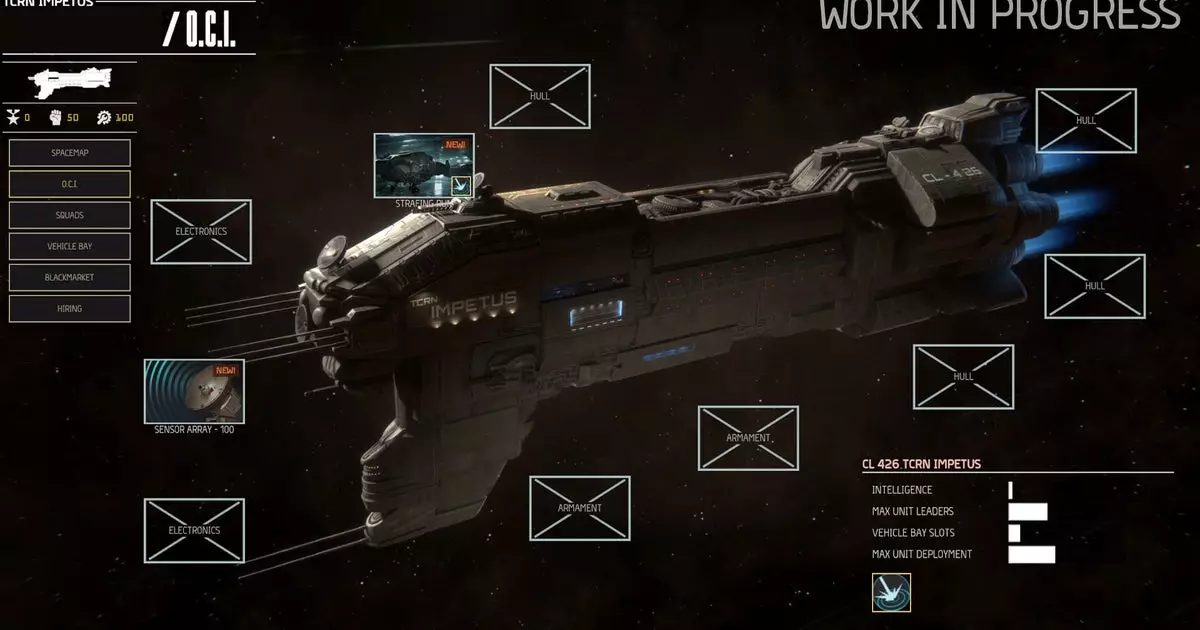The strategic gameplay of “Menace,” combined with its engaging role-playing elements, presents itself as a multifaceted offering in today’s gaming landscape. As outlined in a preview by Staff Sergeant James Archer, the game operates on both tactical and strategic planes, but it is the strategic layer that forms the essential scaffolding supporting the tactical thrill of turn-based combat.
The strategic layer is a crucial, albeit often overlooked, element of many tactical games. In “Menace,” this layer represents the broader narrative mechanics and decision-making processes that occur between intense battles. Players will navigate through a starmap that showcases various planets within the Wayback solar system, acting as the stage where factions exist and missions unfold.
The developers, Overhype, have carefully crafted these mechanics to ensure that players have agency between missions. The starmap serves more than just a background; it’s the pulse of the game where important decisions are made. Players must consider their standing with different factions, which can change based on how they handle missions and requests for assistance. Ignoring a faction’s distress call can lead to tense relationships that pose challenges in future encounters.
In “Menace,” players are tasked with managing various resources like promotion points for leveling up squads, Operational Capability Improvements (OCI) for ship upgrades, and authority points to maintain crew morale. Each resource has its own weight and significance, demanding players to think ahead and prioritize wisely.
The crew management adds a layer of complexity that goes beyond traditional combat mechanics, as players must resolve internal conflicts or morale issues that arise. From bar fights to supply shortages, the motley crew of soldiers requires attention and oversight. This aspect amplifies the strategic thinking needed in “Menace,” as players must decide whether to address issues immediately or postpone them to preserve valuable resources.
While the strategic aspects of “Menace” provide a necessary framework, the real allure lies in the turn-based tactical combat. The game emphasizes the significance of reconnaissance over sheer firepower. To maximize effectiveness, players need to keenly observe enemy movements and positions during briefings, which can drastically influence the flow of battles.
Ship upgrades play a critical role in combat effectiveness, with players able to select from a variety of enhancements to equip their strike cruiser, the Impetus. New capabilities range from drop ship support to vital health restoration for troops during missions. The breadth of options allows for customizable strategies that enable players to choose their preferred play style, whether they focus on heavy artillery or more tactical maneuvers.
Character development in “Menace” is another highlight, showcasing a roster of squad leaders, each equipped with unique traits and an individual perk tree. This focus on individualism among characters both enhances the narrative depth and gives players a chance to customize their experience. The ability to promote soldiers and allocate perks ensures that every decision shapes the team’s capability and personality.
Moreover, the exploration of the black market promises an intriguing dimension where players can acquire new gear and recruit squad members, introducing elements of strategy that stretch beyond immediate gameplay into long-term planning.
In summarizing the layers of gameplay in “Menace,” it becomes evident that the developers have created a rich tapestry that intertwines strategic resource management with tactical combat. While initial impressions might suggest a conventional format, the depth offered through character development, decision-making, and reconnaissance establishes “Menace” as a potential standout in the genre.
As we await its release, the combination of its tactical and strategic components piques interest. Will the developers be able to create a game that not only captivates the tactical strategist but also encourages engagement between conflicts? Only time will tell, but “Menace” holds the promise of being a rich addition to the turn-based RPG genre, blending nuances that challenge and excite both new and seasoned players alike.


Leave a Reply